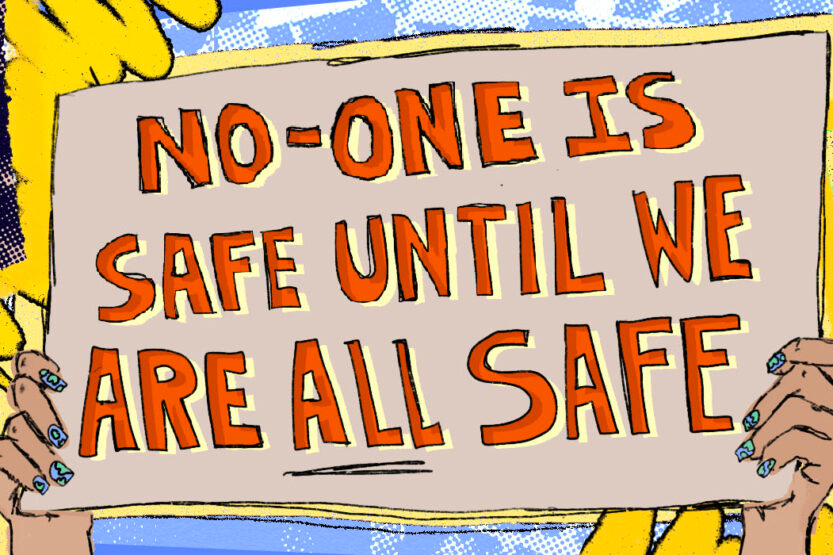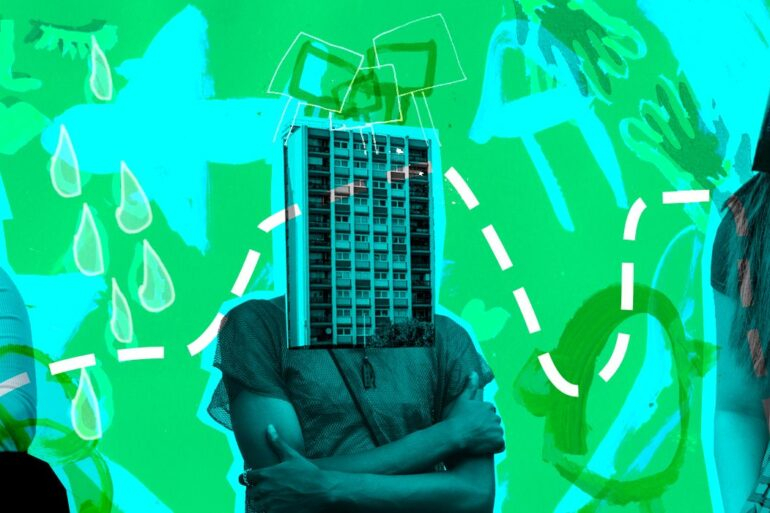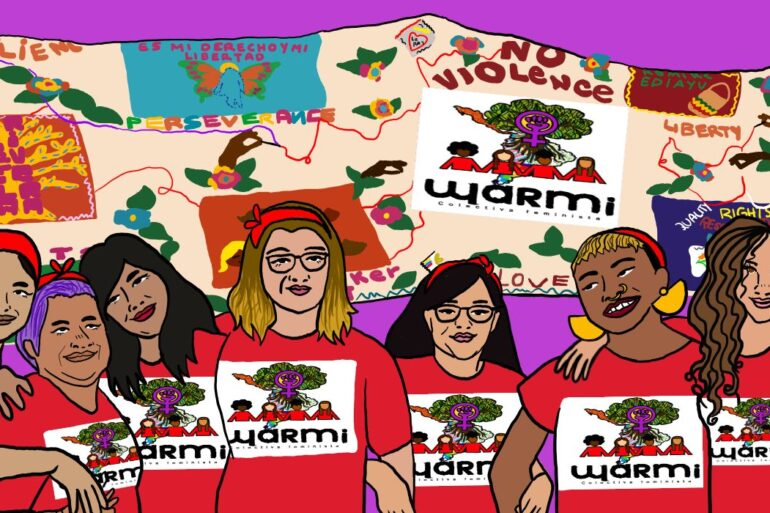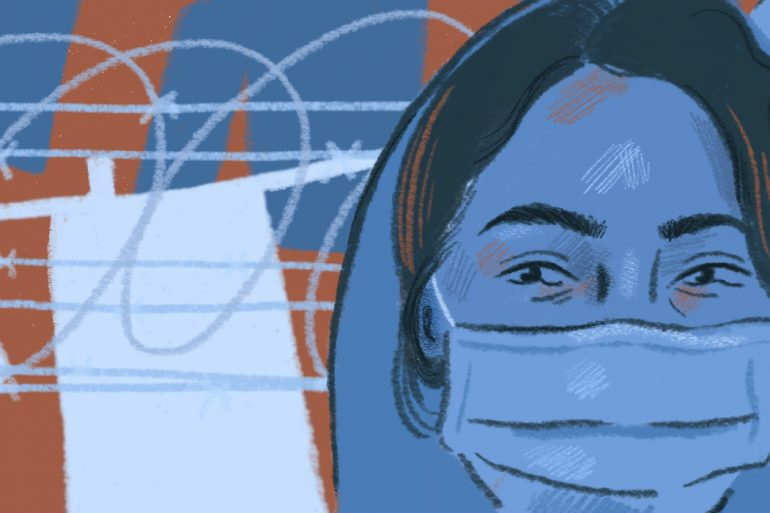“We should move fast, feel free to be ourselves, and have fun.” This is Twitter’s mission statement and for many it encapsulates how they use the platform: to share and absorb information quickly and in a digestible format.
However, for some, Twitter doesn’t exist as an alternative space for conversation – in fact, it is often the only space to have uncensored public discourse. The Nigerian community, with its multi-ethnic groups, different languages, and multiple religious affiliations, has leveraged this platform to start conversations, inspire solutions and attract international attention to social movements in Nigeria.
Therefore, when Twitter was banned in the country last year on 4 June until 13 January 2022, it was a massive blow to Nigeria’s citizens, especially its online influencers and activists.
I’m a Nigerian writer who is passionate about using storytelling to build awareness and foster inclusion, but I had not considered building a Twitter presence before the site was banned. However, the restrictions placed on the platform, and what this meant concerning our government’s growing powers of control, made me realise the important role it plays in online advocacy.
Reasons for the ban
The ban occured after Twitter deleted a tweet by the Nigerian President, Muhammadu Buhari, which read: “Many of those misbehaving today are too young to be aware of the destruction of lives that occurred during the Nigerian civil war‘, [so] those who went through the war will treat them in the language they understand.”
The ‘misbehaviour’ the President referred to were attacks against government and security authorities, which were allegedly carried out by members of pro-Biafra groups. However, the government decided to perceive these attacks in the Eastern part of the country as signs of a more widespread rebellion.
Twitter ruled that this post went against their community guidelines of abusive behaviour. This did not go down well with the government, which swiftly decided to ban the platform across the entire country in retaliation.
Online activists and influencers are often the first point of digital advocacy in Nigeria. So when the Nigerian government implemented the ban, it disconnected many of Nigeria’s activists from the global community, meaning certain campaigns missed out on vital international attention. Influencers also lost out on the income that the site brought them and were forced to further hide from the public eye due to safety concerns.
#ThankGodForVPN: how activists were able to find new pathways for communication
For online activists and influencers seeking out other social media platforms for advocacy seemed like the next logical step, but this also meant building a new audience from scratch. However, the helplessness of the situation dug up the ever-resilient spirit of Nigerians, and many started using VPNs to continue tweeting and maintaining their online presence. In fact, #ThankGodForVPN was amongst the highest trending hashtags in Nigeria that week.
VPN stands for Virtual Private Network. It enables a location change on browsing devices and thereby allows people to circumvent the ban through configuring IP addresses and hiding physical locations.
However, using a VPN is not without its challenges. VPNs consume a lot of data, reduce internet speeds, cause frequent connection breaks, and decrease the battery life of devices.
Given that Nigeria is a country with a high rate of poverty and unstable electricity, influencers were often unable to make use of this newly necessary piece of technology.
However, many were not deterred. There were those whose resilience allowed them to view these new restrictions as part of a necessary sacrifice in the name of their activism.
Activist resilience and pragmatism
Rinu Oduala is one such activist. She is the project director for Connect Hub NG and campaigns for greater youth participation in government and more efficient leadership in the country in general. She became famous for leading demonstrations during the 2020 EndSARS protests in Nigeria.
She has been active on the platform since 2018 and was named as Twitter Influencer of the Year in 2021. She was also listed as both one of the 100 most powerful Nigerians and 100 most influential people in Africa. She was therefore deeply affected by the ban, and agreed to share her views with me on this, and the effect of the ban’s subsequent lift.
“Twitter is a very useful platform for awareness and mass organisation,” she tells me. “As a community organiser, the ban sets a worrying precedent, not just for Nigeria, but for Africa and perhaps the world. It signals that in the most populous Black nation on Earth, a democratic administration can wake up one day and decide to infringe on people’s rights with no consequences.”
She further explains that as other democratic spaces, such as youth forums and centralised political platforms, in the country had been shrinking, Twitter was vital to advocate for many causes: “We did not need to wait for permission any longer before speaking. That was why it was banned, the government woke up and wished it extinct.”
Yet in the wake of the ban, Rinu remains confident about Nigeria’s online activist culture due to the strength and pragmatism she saw from others working in the space. She says, “The activist space in Nigeria is vibrant, engaging, helpful, and dynamic. It reflects the resilience and sheer strength of young people, who have created jobs and livelihoods for themselves after the government of the day refused to provide any.”
Toyosi Godwin, a digital marketer and writer whose work focuses on supporting young people to achieve financial freedom, tells me he also had a “terrible experience” when brands stopped working with influencers during the ban. However, and interestingly, he highlights that there were actually some positive impacts from the ban – more specifically, in raising awareness of state violence and repression.
Toyosi feels that: “the ban and its subsequent lift helped to shape the views of the people about the leaders in power. Until that point, many didn’t believe that these restrictions could happen in present-day Nigeria.”
Subscribe to shado's weekly newsletter
Exclusive event news, job and creative opportunities, first access to tickets and – just in case you missed them – our picks of the week, from inside shado and out.

Renewed political awareness
This effect was seen clearly in the clamour for permanent voters cards (PVCs) which occurred after the ban. People’s political awareness was renewed and they wanted to ensure they voted for the right leaders.
Toyosi also explains that the ban helped drive his visibility, and those of other Nigerian activists on the platform, as he and others gained thousands of followers after it was lifted.
Those, like myself, who had previously not been Twitter users, started signing up to the platform because of the attention the ban had garnered. We realised the power Twitter had in riling up our government, and despite the use of VPNs which allowed some activists to remain active on the site, the ban reinforced its importance as a space to exercise our freedom of speech and to stand in defiance of the actions of our government.
The ban was finally lifted after Twitter agreed to manage unlawful content, register its operation in Nigeria, and to pay tax – conditions set by the Nigerian government. These new restrictions mean that activists have to be more careful about how they package their content to avoid negative repercussions.
This new relationship with Twitter also hints at increased government manipulation of the platform. I believe that the lifting of the ban was timed to allow government candidates to utilise the platform to help their campaigns ahead of the general election.
However, this does not mean that the platform ceases to be a space for activism. As the resourceful nature of Nigerians during the ban shows, activists will carry on exercising their right to speak out against bad governance, and effectively adapt to any future restrictions.
The Twitter ban sparked an awakening of our civic responsibilities and it became obvious that even though we are in a so-called democratic state, our leadership can decide to clamp down on our rights whenever they deem fit.
So, we have resolved to focus our energies in the ballot box and to elect leaders who we feel better represented by. With the power of Nigerian online advocates to contend with, these new leaders should worry about being held to account.
What can you do?
-
Follow Y_monitor to understand how to strengthen government transparency and encourage accountability in Nigeria.
- Read about Nigeria’s shrinking civic space in a post ENDSARS climate
-
Read this article on how the Twitter ban affected NGOs and businesses in Nigeria
-
Support Feminist coalition with donations on Twitter @feminist_co to enable them to provide relief for demonstrations.
-
Listen to NPR’s podcast on dealing with the Twitter ban.

The illustration is depicting activists in Nigeria, wearing blue birds’ masks which represent the social media twitter they use to connect, share information and shed light on social movements in the country. As the article mentioned, the twitter ban disconnected many Nigerian activists from each other and from their fight. Using VPN was helpful for those who could afford it. The laptop burning is a metaphor for these difficulties. This situation raised political awareness to people, who use their voting power to ensure the right person will be elected. The trumpet flower at the bottom (Costus Spectablis) is the symbol of the nation’s beauty, which for me could represent the richness of the culture and the people of Nigeria that needs to be protected against repressive governments.














